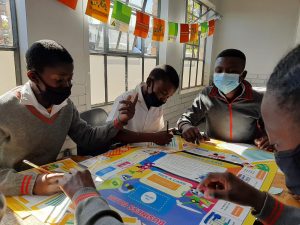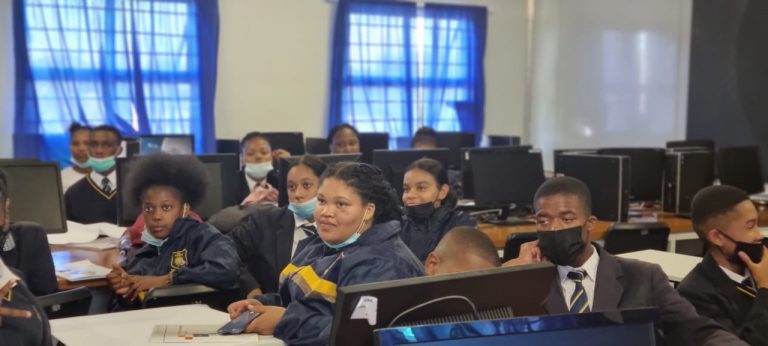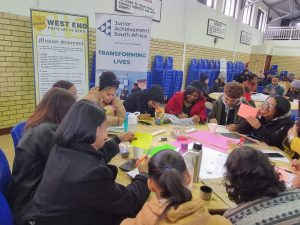Forty-seven years since the 1976 Youth Day riots, the youth of South Africa, find themselves at a cross road. Calls for accelerating youth economic emancipation for a sustainable future, amidst the high youth unemployment rate. Education continues to play a critical role in the trajectory of young people. Like it did for the youth of pre-apartheid South Africa.
Junior Achievement South Africa’s core offerings have helped change the narrative and address some of these issues and have to date empowered over 600 000 young people for over 43 years. Backed by JA’s Global Impact report, the venture into entrepreneurship, work readiness and financial literacy has been found to positively impact economies, the workforce and inspiring entrepreneurs.
The research notes that entrepreneurial training prepares young people for the world of work .As a result of their JA experiences, our alumni start more companies, hire more employees, and produce significantly larger annual sales than ventures led by non-alumni.
Our core offerings provide a robust approach to counter unemployment and hopelessness whilst addressing financial literacy. Entrepreneurship at a young age teaches youth skills for the workplace, they learn how to be financially savvy and are innately problem solvers.
In South Africa a high number of programme alumni in South Africa proceed to pursue a tertiary degree which speaks to the Statistics South Africa report that says only 98 % of graduates are in employment. Thus saying those that take part in JA experiences move from the (not in employment, education or training) NEETS group to pursue further education.
Work readiness and entering the workforce is critical as in the trajectory of the vocation one will ultimately spend their professional career. Being well informed about opportunities out there and matching it to one’s talents, skills and interests, puts youth in good stead when choosing their career path. Our research notes that over 88 % of alumni record being happy in their current role compared to 47 % of the general public who have not experienced JA work readiness programmes. Over 70 % of young people found that the JA volunteer helped them understand the world of work giving them practical experience to problem solve.
Soft skills speak to team work, time management, and creative thinking. These are important skills that separate those who are absorbed in the workforce as organisations try to empower employees but also ensure the candidate positively impacts the performance of their organisation. Employers consider candidates that are flexible and adaptable, allowing them to quickly learn and execute the desired task in their role.
According to OECD, having a population with a high financial literacy positively contributes to the economy’s national strategy.
Only 36 % of young South Africans are financially literate. To be considered financially literate an understanding of, interest rates, inflation, risk diversification and compound interest. JA’s financial literacy programmes, teach young people to earn, save, spend and donate, exploring four key concepts of financial literacy. The research found that over 50 % of JA alumni save better, compared to 30 % of non JA alumni.
The role of government is critical in ensuring entrepreneurship education as offered by organisations like Junior Achievement South Africa reach more young people. Doing so will go a long way in empowering the countries’ future world of work entrants, seeing a more financially literate working class, which positively affects the savings culture in the country. Lastly, it will ensure entrepreneurship is innovative, which is more sustainable, and far reaching then survivalist and lifestyle entrepreneurs, whose reach is limited.









